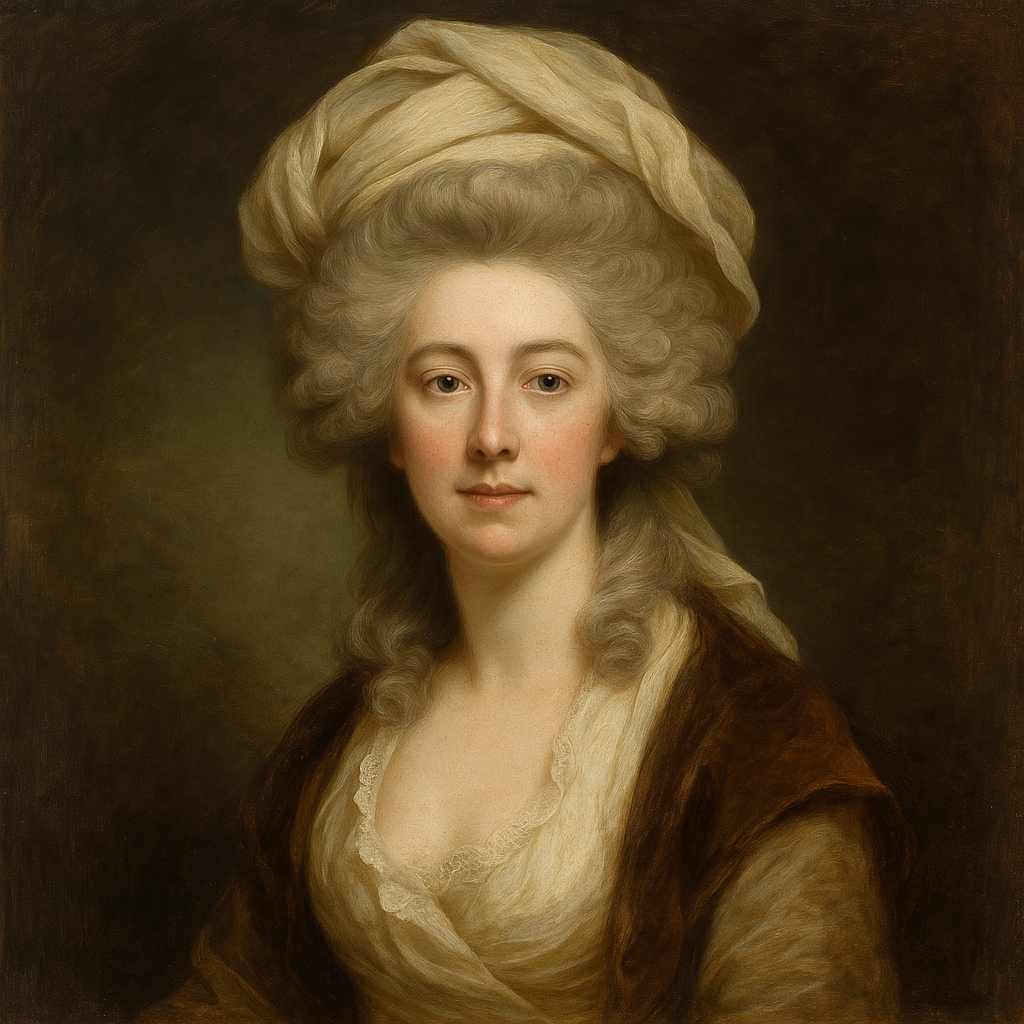1 Poems by Elizabeth Craven
1750 - 1828
Elizabeth Craven Biography
Elizabeth Craven, born Elizabeth Berkeley in 1750, was a fascinating figure in 18th-century English literature and society, known for her unconventional life, literary works, and connections to prominent figures of her time. She was born into the aristocratic Berkeley family at Berkeley Castle in Gloucestershire, a lineage that provided her with both privilege and the burden of societal expectations.
From an early age, Elizabeth displayed a keen intellect and a passion for literature. Her education, though typical for a young woman of her social standing, was supplemented by her voracious reading habits and her family's extensive library. This early exposure to literature would later influence her own writing style and subject matter.
In 1767, at the age of seventeen, Elizabeth married William Craven, 6th Baron Craven. The marriage was arranged, as was common for the aristocracy of the time, and it proved to be a tumultuous union. Despite the difficulties in her personal life, Elizabeth began to explore her literary talents during this period. She wrote poetry and plays, some of which were performed privately at her husband's estate, Benham Park in Berkshire.
Elizabeth's first published work, "A Journey Through the Crimea to Constantinople," appeared in 1789. This travelogue was based on her experiences during a tour of Europe and the Ottoman Empire, which she undertook after separating from her husband in 1783. The book was well-received and established her reputation as a travel writer. Her observations were keen, and her writing style was engaging, combining personal anecdotes with historical and cultural insights.
Throughout her life, Elizabeth moved in elite social circles, forming friendships with notable figures such as Horace Walpole, Dr. Johnson, and James Boswell. These connections not only enriched her personal life but also influenced her literary output. Her salon in London became a gathering place for intellectuals, artists, and members of high society.
Elizabeth's poetic works, though less well-known than her prose, reveal a sensitive and observant mind. Her verses often touched on themes of love, nature, and the human condition. One of her most acclaimed poems, "The Wish," showcases her ability to blend personal emotion with universal themes, a hallmark of the Romantic movement that was beginning to emerge during her lifetime.
In addition to her poetry and travel writing, Elizabeth wrote several plays. "The Silver Tankard" and "The Miniature Picture" were among her most successful dramatic works. These plays often featured strong female characters and explored themes of societal expectations and personal freedom, reflecting Elizabeth's own experiences and beliefs.
Elizabeth's personal life continued to be a subject of gossip and scandal. After the death of her first husband in 1791, she married Christian Frederick Charles Alexander, Margrave of Brandenburg-Ansbach. This union allowed her to become the Margravine of Brandenburg-Ansbach, a title she used in her later publications.
In her later years, Elizabeth settled in Naples, where she continued to write and entertain. Her final major work, "Memoirs of the Margravine of Anspach, Written by Herself," was published in 1826, just two years before her death. This autobiography provides invaluable insights into her life and the society in which she lived, though it is often colored by her desire to present herself in the best possible light.
Elizabeth Craven's literary legacy is complex. While her works were popular during her lifetime, they fell into relative obscurity in the centuries following her death. However, recent scholarly interest has led to a reevaluation of her contributions to 18th-century literature. Her travel writings, in particular, are now recognized for their vivid descriptions and cultural observations, providing a unique female perspective on the Grand Tour tradition.
Elizabeth's poetry, while not as widely studied as that of some of her contemporaries, offers a valuable window into the transitional period between Neoclassicism and Romanticism. Her verses often display a blend of formal structure and emotional expression, reflecting the changing literary tastes of her era.
Critics and scholars have noted that Elizabeth's work often grapples with the constraints placed on women in 18th-century society. Her characters frequently challenge societal norms, and her own life served as a model of female independence and intellectual pursuit. This feminist undercurrent in her writing has attracted increased attention in recent years, as scholars seek to recover and reexamine the voices of women writers from this period.
Elizabeth Craven's life and work continue to fascinate literary historians and students of 18th-century culture. Her unconventional personal life, her travels, and her diverse literary output make her a compelling figure for study. As more of her works become accessible through modern editions and digital archives, it is likely that interest in Elizabeth Craven will continue to grow, cementing her place as a significant voice in the literary landscape of her time.
In conclusion, Elizabeth Craven emerges as a multifaceted figure: poet, playwright, travel writer, and socialite. Her life and works offer a rich tapestry for scholarly exploration, touching on themes of gender, class, travel, and literary innovation in the late 18th and early 19th centuries. As research into women's writing of this period continues to expand, Elizabeth Craven's contributions to literature and her unique perspective on her era ensure that she will remain a subject of interest and study for years to come.
This text was generated by AI and is for reference only. Learn more
Username Information
No username is open
Everything is free to use, but donations are always appreciated.
Quick Links
© 2024-2025 R.I.Chalmers (V2Melody).

All music on this site by R.I.Chalmers (V2Melody) is licensed under a Creative Commons Attribution-NonCommercial 4.0 International License.
Attribution Requirement:
When using this music, you must give appropriate credit by including the following statement (or equivalent) wherever the music is used or credited:
"Music by R.I.Chalmers (V2Melody) – https://v2melody.com"
Support My Work:
If you enjoy this music and would like to support future creations, your thanks are always welcome but never required.
Thanks!


